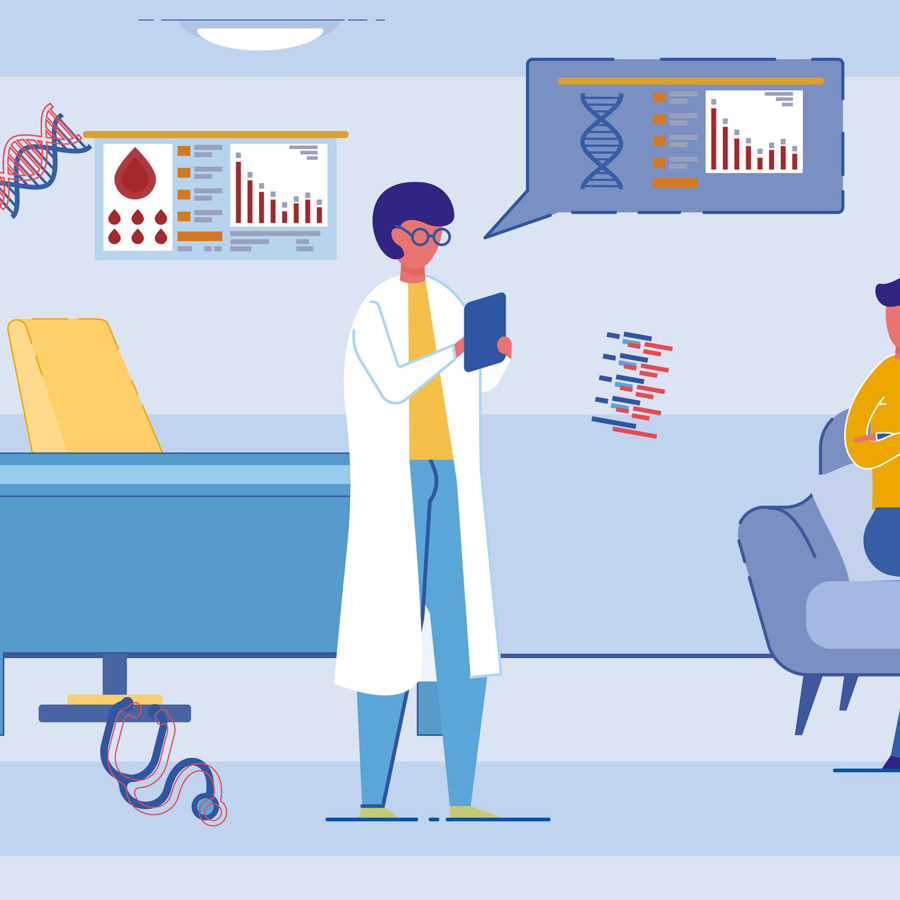
Who can I talk to about my genetics?
May 27, 2025

- Related Topics:
- Career pathways,
- Genetic testing,
- Medical genetics,
- Personalized medicine
A curious adult from Pakistan asks:
"There is an increased risk in cousin marriage but there is also a chance for non-related couples to have mutations in their same genes, and they can pass a disease to their offsprings. My question is where & by whom such tests are conducted?"
Genetics can be a tricky topic to understand, and even once you know all of the information about your genes through genetic testing, knowing what to do with that information, and how to process it, can be even trickier! Luckily, there are professionals in the field of genetics out there to help with ordering, understanding, and processing these genetic tests. These professionals are called: Genetic Counselors.
What is a Genetic Counselor?
Genetic counselors (GCs) have been growing their profession globally since the 1990’s, and the field has been rapidly expanding since the development of the field. But what is a genetic counselor?
In terms of training, a genetic counselor is an individual who has received a master’s degree in Genetic Counseling at an accredited university, after receiving a bachelor's degree. There is not a particular field required for the bachelor’s degree, however, programs may have specific course requirements, which many STEM (science, technology, engineering, and math) majors can help cover. A list of accredited programs can be found on the National Match website, where genetic counselors apply for programs through a match system. Looking through these programs can give you an idea of what pre-requirements are needed for individuals to receive admission. Programs are typically two years long and include intensive training about genetics on a scientific basis, as well as counseling skills that GCs can use to work with patients to understand implications of genetics.
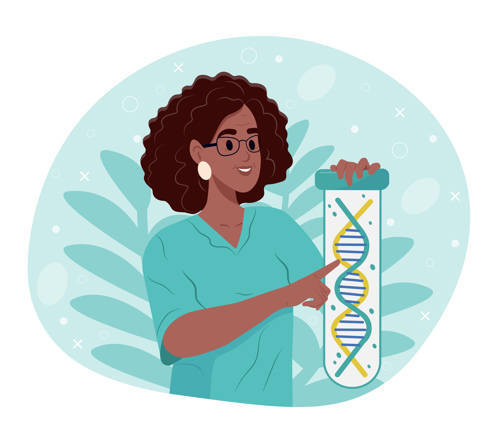
What can a genetic counselor do for me?
The main goals of genetic counselors are to interpret, educate and counsel.
In terms of interpreting, this isn’t only about decoding genetic test results. Rather, genetic counselors will talk with patients about their personal and family medical history to decide if genetic testing is appropriate. If testing is appropriate, GCs can then take this information to make informed decisions about which specific tests would be best to order for the patient. There are a lot of different types of genetic tests, and it’s important to have a professional who understands the breadth and depth of available tests so that the most appropriate one is ordered.

When it comes to educating, the GC’s goal is to help patients understand what the purpose of genetic testing is, and even before that, to explain what our genes can and cannot tell us. If a patient is coming in for genetic testing regarding a specific condition, the GC aims to educate the patient about what the condition itself is, and talk through how genetic test results may impact the patient. This could be in terms of changes in management, diagnosis, or passing down genes to future generations. The education can take a lens of what is most important to the patient, so the GC and patient can work together to gather the necessary information and talk through what it means for the patient.
This leads to the counseling portion of the jobs for genetic counselors. Genetic test results can have a lot of life impacts that are important to talk through with a professional. Impacts of results should be talked about with a professional so that all aspects are considered. This helps you and your GC talk through if genetic testing is the right option for you. Understanding the patient's main goal in receiving testing is important in making this decision.
These goals of genetic counseling can be intertwined through the appointment, not necessarily coming in a specific order. The focus is on the patient’s needs and helping them get what they want out of the appointment.
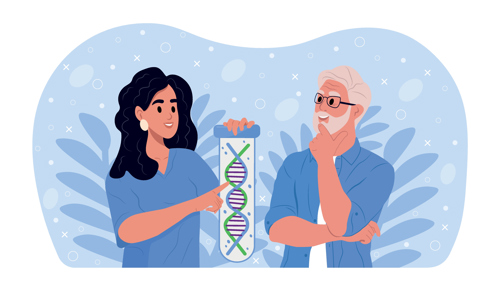
What does this look like in practice?
Let’s use the example of a prenatal clinic. A couple can see a genetic counselor when they are considering family planning to get an understanding of their reproductive outcomes.
To start, the genetic counselor may talk with the couple about what their primary goals of the session will be, and talk to them about what genetics can and cannot tell them. When seeing a genetic counselor, it’s important that everyone is on the same page about what genes are and what the limitations of knowing more about them can be. After understanding how the couple views the appointment, they may go through a family history, which is called taking a pedigree. This allows the GC to get a better understanding of health conditions that may run in each individual's family. Getting an understanding of this allows the GC to think about what testing may be most appropriate, and what their future child may be at risk for. The couple may also share their personal health concerns, or what they have been affected by. This allows the GC to discuss inheritance of conditions that they are currently aware of.

Talking through all of this information allows the GC to make a plan for what testing may be most relevant to order for the couple. Say in this case, the GC tells the couple about carrier screening, a test that looks at a wide range of genetic conditions to see the couple’s risk of passing down conditions they may be carriers for, but don’t display symptoms of. The GC would talk through what it might be like for the couple to receive positive, negative, and unknown results. This allows them to consider if genetic testing is the right plan for them, as well as thinking about how they might proceed with a number of possible results.
Once results come back, the GC can schedule a follow up appointment with the couple to go over what the results do and do not mean, and talk about future steps. In terms of a prenatal clinic, like in this example, the next steps may be to talk about options to avoid risk of passing down disease-causing traits in a pregnancy. Again, the focus would be on what the patient(s) need, so the GC can find resources for them, and talk through how they are feeling about the results they received.
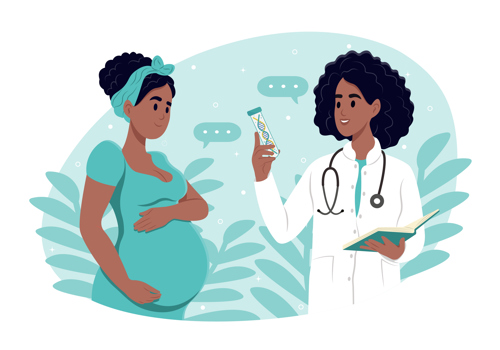
This is only one potential scenario that can come up in a genetic counseling session. However, these sessions take place in many different settings and are truly tailored towards what each individual patient needs. What matters most to one person in a GC appointment, might be completely different to another. So it’s important to recognize the range of what can be covered when thinking about whether seeing a genetic counselor is right for you.
Where can genetic counselors work?
Since so many parts of our health care intertwine with genetics, GCs can work in a wide range of clinics. Some of the bigger types of clinics where you may see a genetic counselor include cancer, prenatal, or medical genetics/pediatrics. However, there are also many specialty clinics to consider. These can include neurogenetics, metabolic, fertility, cardiology, and so many more. If there is something in your life you think may be helpful to talk through with a genetic counselor, talking through these ideas with your primary care provider may be a good place to start.
However, genetic counselors may also work in many other settings, as skills learned in GC training are easily transferable to other areas. These may include settings in research, laboratories in industry, policy, and so many more! As the field of genetics grows, the scope of practice for genetic counselors grows with it.
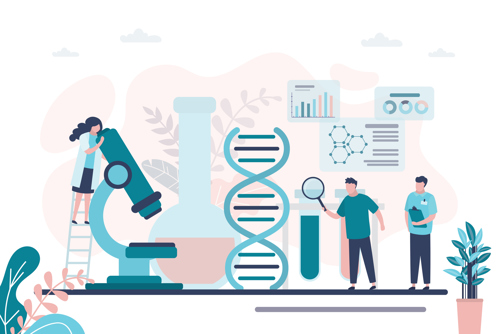
How can I find a genetic counselor?
Typically, people see a genetic counselor through a referral from their primary care physician or another specialty provider they may be seeing. However, to see other genetic counselors that are available for your care, the National Society of Genetic Counselors (NSGC) has a web page that lists over 3,300 genetic counselors in both the United States and Canada. This can be a great resource to start your journey with a genetic counselor.
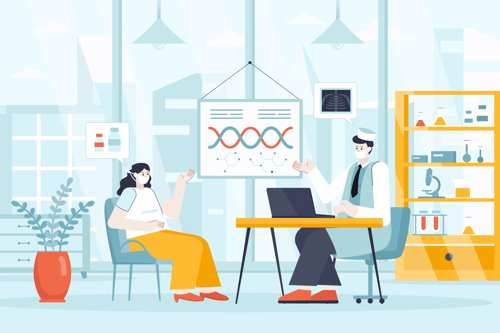
Conclusion
Overall, understanding genetics should not be something one has to do alone. Genetic counselors can be a valuable resource and offer support for you in your healthcare journey. Deciding if you’d like to see one is a highly personal decision, but they are there to work with you and understand the lens you are approaching your healthcare with.
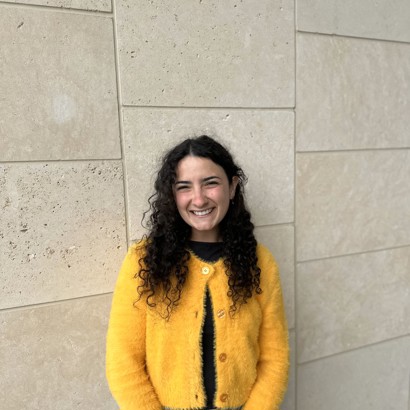
Author: Chloe Rome
When this article was published in 2025, Chloe was a first year student at Stanford getting her masters in Human Genetics and Genetic Counseling. Chloe wrote this answer while participating in the Stanford at The Tech program.
 Skip Navigation
Skip Navigation
